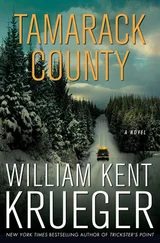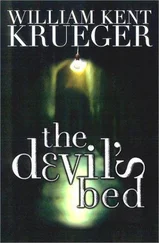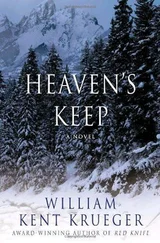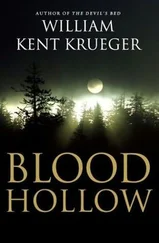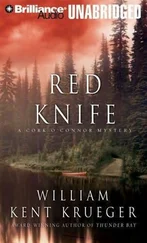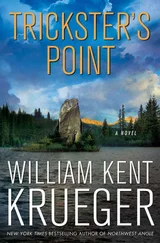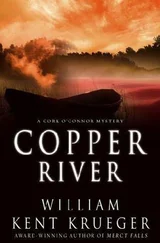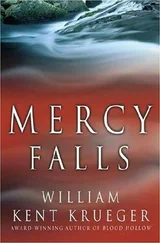William Krueger - Ordinary Grace
Здесь есть возможность читать онлайн «William Krueger - Ordinary Grace» весь текст электронной книги совершенно бесплатно (целиком полную версию без сокращений). В некоторых случаях можно слушать аудио, скачать через торрент в формате fb2 и присутствует краткое содержание. Жанр: Триллер, на английском языке. Описание произведения, (предисловие) а так же отзывы посетителей доступны на портале библиотеки ЛибКат.
- Название:Ordinary Grace
- Автор:
- Жанр:
- Год:неизвестен
- ISBN:нет данных
- Рейтинг книги:4 / 5. Голосов: 1
-
Избранное:Добавить в избранное
- Отзывы:
-
Ваша оценка:
- 80
- 1
- 2
- 3
- 4
- 5
Ordinary Grace: краткое содержание, описание и аннотация
Предлагаем к чтению аннотацию, описание, краткое содержание или предисловие (зависит от того, что написал сам автор книги «Ordinary Grace»). Если вы не нашли необходимую информацию о книге — напишите в комментариях, мы постараемся отыскать её.
Ordinary Grace — читать онлайн бесплатно полную книгу (весь текст) целиком
Ниже представлен текст книги, разбитый по страницам. Система сохранения места последней прочитанной страницы, позволяет с удобством читать онлайн бесплатно книгу «Ordinary Grace», без необходимости каждый раз заново искать на чём Вы остановились. Поставьте закладку, и сможете в любой момент перейти на страницу, на которой закончили чтение.
Интервал:
Закладка:
“Let him go,” I said.
Gus shrugged. “All right then. Come on, Frankie.” He turned and headed toward Doyle who was waiting behind the opened door on the driver’s side of a gray Studebaker parked at the curb.
Jake grabbed my arm. “Don’t g-g-go, Frank.”
“Why not?”
“I’ve got a b-b-bad feeling.”
“Forget it. It’ll be all right. You go on home.” I shook loose his hand and climbed into the backseat of the Studebaker.
Doyle pulled away from the curb and Jake watched us from the shadow of the drugstore awning. Up front Gus banged his fist against the dashboard and said, “Boys, we’re going to have us one hell of an afternoon.”
We stopped first at the Freedom Fourth Fireworks stand which was set up in a vacant lot across the street from the Texaco gas station. There were a lot of people at the stand and Doyle called out their names and shook hands all around and before he let go he said, “Hope you still got all your fingers come July fifth,” and he laughed. Gus and Doyle bought a bunch of fireworks which the people at the stand put into a couple of big brown paper bags. At the end Gus turned to me and said, “What do you want, Frankie?”
I looked at the box of M-80s which were firecrackers powerful enough to blow your fingers off and which my father would never have allowed me. I pointed and said, “One of those.”
Gus said, “I don’t think Nathan would like that.”
But Doyle said, “Hell, I’ll pay for it.” And he grabbed a handful of the explosives and laid down money on the plywood counter and we left. We made one more stop, this at a liquor store where Doyle bought beer in cans, then we drove to Sibley Park on the river just outside of town. It was a few hundred yards beyond the home of Emil Brandt and as we passed I saw Ariel sitting on the porch with Brandt. She had papers in her hands and I figured she was working on his memoir. Lise was watering the flowers along the fence with a hose. She had on dungarees and a sleeveless green top and wore a big straw hat and gardening gloves and looked almost pretty. None of them paid any attention as I sped past in Doyle’s Studebaker. At the park there was a ball field and a playground of ugly metal structures-a jungle gym and a long slide and three swings and a rusty merry-go-round-that on a hot summer day could burn you like a lit match. A few weathered picnic tables stood in grass that went unwatered and was always completely dead by late July. Doyle’s Studebaker when he pulled into the gravel lot was the only vehicle in sight and the park was empty. We piled out and I followed the two men across the field of unkempt grass. They headed toward the river, crossed the railroad tracks that ran alongside the park, took a path through the cottonwoods, and emerged on a long sandy flat where high school kids sometimes built bonfires and drank beer. The char from those fires spotted the sand like black lesions. In the shade of a cottonwood Doyle and Gus set down the paper bags full of fireworks and Doyle took a church key from his pocket and punched holes in a can of beer which he handed to Gus. Then he punched open a can for himself. They sat and drank and talked and I sat with them and wondered when the fun would begin.
They talked baseball. It was the first season for the Minnesota Twins who’d been the Washington Senators the year before. The names of Harmon Killebrew and Bob Allison and Jim Lemon were on everyone’s lips.
Doyle addressed me. “What do you think, Frankie? Think Minnesota’s got itself a good ball club?”
I was surprised at Doyle’s question because not many adults asked my opinion of things. I tried to speak knowledgeably. I said, “Yeah. Their bull pen’s a little weak but they’ve got strong hitters.”
“That they do,” Doyle said. “Gus tells me you’re a good ballplayer yourself.”
“I’m okay,” I said. “I’m a pretty fair hitter.”
“Play on a team?”
“No. Just pickup games down on the Flats.”
“Want to be a ballplayer when you grow up?”
“Not really.”
“What? A preacher like your old man?”
He laughed when he said this as if being a minister was a joke of some kind.
Gus said, “His father’s a good man and a hell of a preacher.”
“Scared of fireworks though,” Doyle said.
I wondered how he knew but when I looked at Gus’s face I understood where the information had come from.
Gus said, “It was the war. Did that to a lot of men.”
“Not me or you,” Doyle said.
“Every man’s different.”
Doyle drank his beer and said, “Some men they just didn’t have the stomach.”
“That wasn’t the Captain,” Gus said and there was something angry in his voice.
Doyle caught the tone and grinned. “You still call him Captain. Why’s that?”
“That’s how I first knew him. A damn fine officer.”
“Yeah?” Doyle looked at Gus slyly. “I heard he cracked.”
Gus glanced at me and then said, “Doyle, you listen to too much gossip.”
Doyle laughed. “Maybe so, but I know things because of it, Gus. I know things.”
Gus turned the talk to politics and they discussed Kennedy and I lost interest and began thinking about all those fireworks in the paper bags and especially about that big M-80 with my name written all over it. Then I realized the talk had swung around to a subject that concerned me.
Gus was saying, “I’ve seen him down on the Flats a few times. Just wondered about him.”
“His name’s Warren Redstone,” Doyle said. “Soon as he showed up in town the chief told us to keep an eye on him. Troublemaker from way back. He tried to start some kind of Sioux uprising here in the valley a bunch of years ago. Got into trouble with the Feds and vamoosed. The chief’s in touch with the FBI, but I guess they got no interest in him now. He’s got a rap sheet, but he’s never done serious time. He’s staying with his niece and her husband. The O’Keefes. When I’m on duty, I roll my cruiser down to the Flats pretty regular just to let him know I’m around.”
Gus said, “Is that why I see you in the neighborhood so much? I could’ve sworn it was because of Edna Sweeney.”
Doyle threw his head back and howled like a wolf. He crushed his beer can and threw it onto the sand. “Come on,” he said and reached for one of the paper bags. “Let’s have us some fun.”
Doyle set up some skyrockets and lit three punks and each of us touched a fuse at the same time and the rockets shot high and went off almost simultaneously in explosions of dark smoke that were like splatters of mud thrown against the blue wall of the sky. We set off strings of firecrackers and Doyle put a cherry bomb in Gus’s empty beer can and the can exploded and jumped as if it had been blasted by a shotgun. He pulled out three of the M-80s and handed one to each of us. He lit his and threw it into the air. The crack of the explosion so near to us was like a gun fired into our faces and I recoiled. But Gus and Doyle didn’t seem bothered at all. Gus lit and threw his M-80 and I squeezed my eyes in anticipation but nothing happened.
“Dud,” Doyle said. “The son of a bitch didn’t go off. Heard that’s a problem with you sometimes, Gus.” He laughed and I had no idea what he was talking about. “Go on, Frankie,” he said. “Your turn.”
I didn’t want to light the M-80 in my hand. Although fireworks excited a measure of recklessness in me I still carried a healthy regard for the strictures my father had laid down and holding a lit firecracker, especially one that could blow my fingers off, wasn’t something I was inclined to do. Instead I mounded some sand and stuck the M-80 in it like a candle on a birthday cake and lit the fuse and stepped back. A moment later the blast obliterated the mound peppering us with stinging grains of sand.
Читать дальшеИнтервал:
Закладка:
Похожие книги на «Ordinary Grace»
Представляем Вашему вниманию похожие книги на «Ordinary Grace» списком для выбора. Мы отобрали схожую по названию и смыслу литературу в надежде предоставить читателям больше вариантов отыскать новые, интересные, ещё непрочитанные произведения.
Обсуждение, отзывы о книге «Ordinary Grace» и просто собственные мнения читателей. Оставьте ваши комментарии, напишите, что Вы думаете о произведении, его смысле или главных героях. Укажите что конкретно понравилось, а что нет, и почему Вы так считаете.


